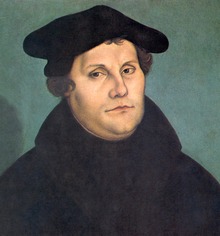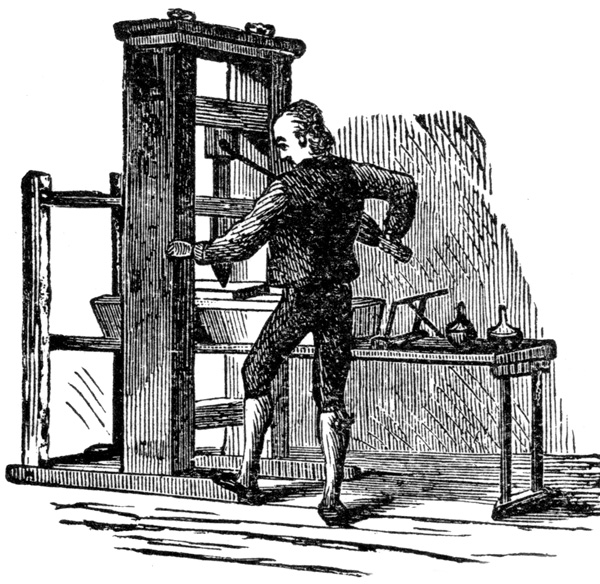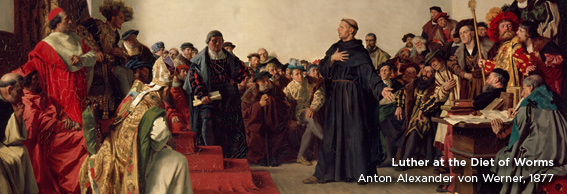Martin Luther set out to right the
wrongs he saw in the Catholic Church. His beliefs in God moved him to stand for what he believed was the right way to follow
God. He began his protest with the 95 thesis, what Luther didn’t know is how
quickly and accepted his protest would spread. Luther originally set out to show the mistake he saw in the church, not a
revolution. He was challenged by the church to rescind his statements, but his
beliefs were too deep, and he refused. This began the Protestant Reformation
and would later spark all different kinds of revolutions.
 |
| Martin Luther |
Not seeking to make a political
stance, Luther kept writing on his beliefs and understandings of what he read in
the bible. He wrote of the fallacies in the Churches explanations of rituals. For example one explained by the scholars were the 5 sacraments, Luther understood the
bible to only have 2. These were the things Luther wished to expose the Church
for exacerbating for their own gains. He
believed in man’s personal relationship with God and while in exile/hiding he
translated the bible from Latin to German. This allowed the common man to read
it for himself.
This translation was not the only
profound affect Luther had on the German culture. His cause sparked the idea of
a revolution, one that could not be undone. The printing press spread his writings like
fire.
 |
| Printing Press |
Using these means, the peasant class of the Holy Roman Empire, mainly made
up of the Germanic kingdoms, experienced uprisings like never before. Some in
support of Luther and against the Church, others against the officials and the
oppressive conditions of the peasant class. One could go so far in saying that
Luther’s beliefs were the key to sparking the idea of revolution. Revolution
had yet to fully be explained or used. Standing against power and authority had yet to
be done during the medieval era, and Luther’s stance against the means and
practices of servitude of God was a cause man found worth backing.
His religious cause profoundly impacted the
political equilibrium during this time. Heavily relied on the church and its
authority, the kings and emperor of the Holy Roman Empire were at risk of
losing great powers. If not for his [Luther] own king, Luther most likely would
have in great danger. Luther offered him [his king] political leverage he need to secure more power.
 | ||||
| Luther defending his writings in front of the Germanic kings and the Emperor |
Luther influenced not only religion by creating a separate denomination in which he wrote how the serve God, he influenced the German lands through translation of the bible and introducing the idea that is revolution.
Gut gemacht, Sara.
ReplyDeleteWolf